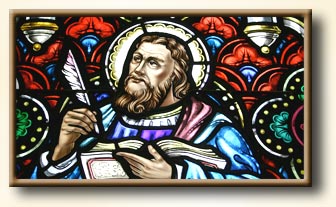|
Perhaps the simplest definition of a lay reader would be that he is an unordained lay minister licensed by a bishop to perform an important though limited ministry within the Church. Every part of that definition is important.
Custom and tradition have dictated that a lay reader shall be male. There is, however, no obvious rational analogy to the theology and tradition which restrict the threefold ordained apostolic ministry to males. As a matter of fact, the Canons of the Episcopal Church do permit the licensing of “a competent woman” in cases of necessity (even though a bit grudgingly!). The normal practice, however, limits this lay ministry to men.
Lay readers are licensed for two reasons. First, they are useful in assisting a priest whose duties are heavy, or who may be called away from time to time. Second, they are very useful in situations such as those which exist in the continuing Anglican movement, where there is a shortage -- sometimes a serious shortage -- of ordained priests and deacons. In these situations, lay readers perform a valuable service in conducting services where otherwise there might not be services for lack of clergy.
What ministry can a lay reader perform? In Anglican (Episcopal) tradition, he is limited to certain functions within the range of worship services of the Church. He can:
- Read Morning and Evening Prayer although he cannot, of course, give the absolution or blessing;
- Read the Litany and the Penitential Office;
- Read the Offices of Instruction (rather more honored by neglect than by use in the present day);
- Read the Epistle in the Order for Holy Communion;
- Read the Burial Offices, omitting any priestly blessing.
In addition, a lay reader may, if so licensed by the bishop, preach sermons of his own composition. It is important that this limitation of special license be observed and understood. Sermons constitute one of the Church’s important teaching instruments. Through sermons, the Christian faith is taught and clarified. If the faith is to be kept unchanged and pure, those who preach and teach and expound it must know it, must have qualified knowledge. That is why lay readers must prove to the bishop by examination or other evidence that they are conversant (and soundly conversant) with the Holy Scripture, the Prayer Book, Church history, Church Doctrine, the conduct of public worship (and, incidentally, know how to use their voices for that purpose!) and other pertinent areas of knowledge. This is a special ministry no less than that of the ordained clergy. It is a special service to the Church in its worship of God. Clergy and laity all share in the priesthood of Christ. All are ministers of the Lord, with an obligation to show forth the faith in their lives and to be disciples and evangelists of the Word. All share equally in the Office of priesthood. Most are called to function as laymen. Some are called to be Lay Readers and to function in particular ways in that service. Some are called to be Ordained Ministers, fulfilling thus a very special function in the Church.
All are equal in the Lord. Lay Readers are simply special servants of the Church, without whom the Church would often be seriously crippled in its worship and in its outreach.
|



